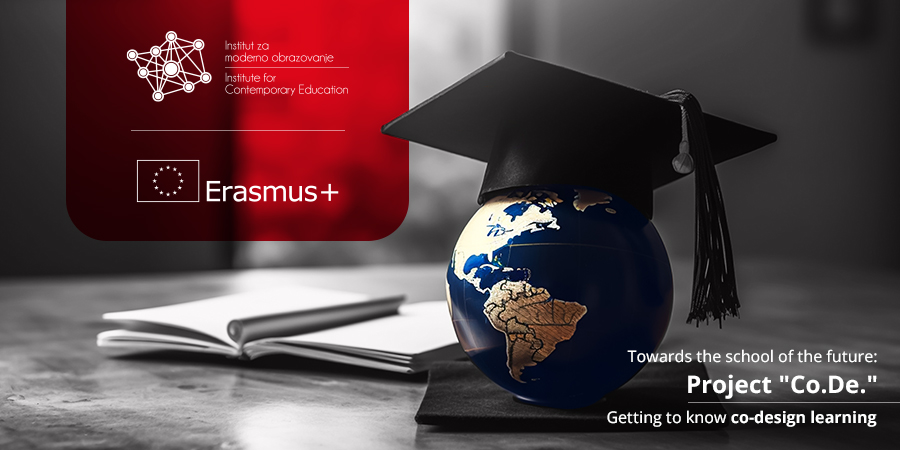
We present to you a new project called Co.De. (CO-DESIGN LEARNING FOR THE SCHOOL OF THE FUTURE), which has an ambitious goal to support Europe in addressing early school leaving among students. This project is part of the Erasmus+ program KA2: Cooperation for Innovation and the Exchange of Good Practices in Education, aiming to enhance educational methods and help teachers gain new competencies through the implementation of co-design in classrooms. The project will be funded by SEPIE, the Spanish Service for the Internationalization of Education, over the next 3 years.
What does co-design learning exactly mean?
It’s an innovative approach that encourages the inclusion of different student perspectives, knowledge, and experiences in the classroom. This fosters critical thinking skills among students, making them central actors in the learning process. The project will promote a new, multidisciplinary approach to teaching and learning in schools, bringing innovations to educational design, teaching methods, assessment techniques, and learning environments. It will introduce more student-centered approaches, allowing students to create their own educational pathways.
Why is this project important?
According to data from 2020, an average of 9.9% of young people in Europe leave school prematurely. While the goal for 2020 was to reduce this number to below 10%, the result achieved was only 9.9%. The new EU target for 2030 is to decrease this to below 9%. To encourage active participation and engagement among students, the use of co-design in designing and developing education is crucial. Teachers and trainers play a key role in providing quality and engaging education for all students, which is why continuous improvement of their competencies is essential.
What is expected from the Co.De. project?
Its aim is to support Europe in tackling the early school leaving issue by adopting an innovative co-design learning approach and addressing its challenges. To achieve this, the project will develop and test the Co.De. tool, supported by a cloud-based platform, which will enable schools to create their own Co-Design Action Plan. Additionally, the project will develop an innovative competency model containing the necessary skills for implementing new learning approaches based on co-design in classrooms, through specific teacher training modules.
Who are the target groups of this project?
Primarily, teachers and educators in secondary schools across the EU, as well as students themselves and the EU education system.
The project will last for 3 years and is divided into four work packages:
- WP1 – Project Management and Coordination, aiming to support successful project implementation and its overall objectives through strong coordination, continuous monitoring, and reporting.
- WP2 – Co.De. Competency Model and Teacher Training, aimed at supporting high school teachers in applying new co-design-based learning approaches through an innovative competency model that explains the knowledge, skills, and abilities needed for this approach, along with training to fill any knowledge gaps.
- WP3 – Co.De. Tool, supported by a cloud-based platform, will be an online and interactive training space where digital educational content will be available for students to download and directly use in their learning process. This tool will include methodology, guidelines, vocabulary, and other useful materials.
- WP4 – Dissemination and Exploitation, with the goal of maximizing the dissemination of project results and activities through various means of communication, both digital (such as the project website and social media) and offline (events and conferences).
The Co.De. project is funded by the Spanish Service for the Internationalization of Education (Servicio Español Para la Internacionalización de la Educación – SEPIE), which enabled its realization. It is conducted by the Institute of Contemporary Education in collaboration with five other partners from different EU countries. This synergy allows for the combination of rich experience and expertise from all partners to achieve high-quality results and fulfill the project’s ambitious goals.
All partners are working together towards a common goal – supporting schools in implementing co-design approaches to learning, thus reducing early school leaving and promoting more inclusive and innovative education. This multidisciplinary approach promises a positive impact on educational systems throughout Europe and enables the achievement of lasting and sustainable results.


 Srpski
Srpski